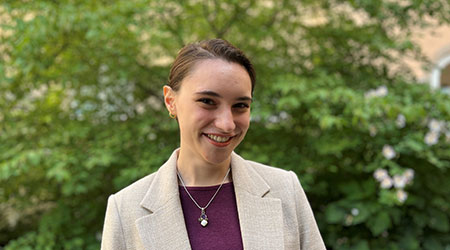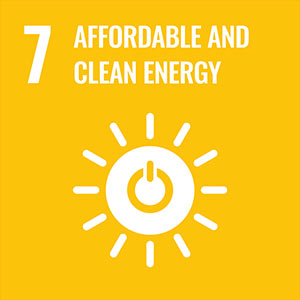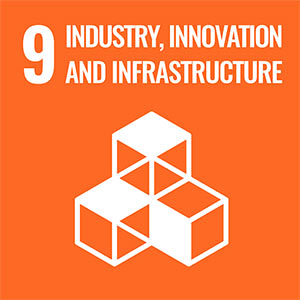BSc Information and Communication Technology
All facets of modern society highly depend on Information and Communication Technology (ICT), from production and transport to communication and entertainment. This programme prepares the next generation of highly skilled specialists to advance the field. Graduates drive digitalisation and develop ICT in various sectors or continue to master's level studies in Sweden or internationally.

Information and Communication Technology at KTH
ICT is an ever-expanding field and the basis for digitalising human communication. Since the conception of the first personal computer in 1950s and the invention of the World Wide Web in the 1980s, ICT has come to affect human life at its core and all industries and sectors. Today, new systems and services continually evolve as people and products become increasingly connected. At the same time, concepts like AI and quantum computing promise to speed up this development even more. While technology can improve people's quality of life and contribute to the green transition, development requires constantly enhanced security. This evolution creates a demand for ICT experts who strengthen the protection against industrial espionage, fake news and cyber warfare and develop reliable AI, e-health and digital design. As a student in the bachelor’s programme in Information and Communication Technology, you find yourself in the centre of this exciting field.
The programme teaches you about electronics, software, computer science and communications technology. It also integrates technology with economics, leadership and sustainable development – giving you a broad perspective on technological development. The programme has a large proportion of elective courses that allow you to tailor your education.
All teaching is conducted in English in a combination of lectures, laboratory work and practice. You will benefit from the extensive group work that you can do both at future employers and in research environments. The programme is based on the latest research that KTH conducts in collaboration with companies and your teachers are prominent professors from all over the world. Through guest lectures and projects you will meet companies and gain a sounder understanding of your future profession.
If you start your studies in the autumn of 2024 you will complete your first semester at our campus in Kista, one of Europe's leading ICT clusters with around 1,000 companies. For your second semester and onwards you will study at KTH's main campus as all education given in Kista will be moved to the main campus in the coming years. Your fellow students come from both Sweden and other countries such as Germany, France, Spain, England and South Korea. Collaborating in intercultural groups is a valuable experience that can lay the foundations for your own international network.
This is a three year programme (180 ECTS credits) given in English. Graduates are awarded the degree of Bachelor of Science. The programme is given by the School of Electrical Engineering and Computer Science (at KTH).
Students
Find out what students from the programme think about their time at KTH.

Career
The ICT market ranks as one of the largest industries in the world. After graduation, creative jobs await in Sweden and internationally. The programme is a path to opportunities in global and regional IT companies, consultancy firms, in most companies’ IT departments and in international institutions. There is also a great need for ICT skills in the automotive industry and medical technology.
You can evolve into a software engineer, consultant, systems specialist and much more. You might have a new idea during the programme and go on to become an entrepreneur, or apply to the many startup companies in the field. Even though more and more people are training in ICT around the world, the need for ICT competence is expected to be high for a long time to come. The prospect of finding exciting tasks and occupations is very good.
As a graduate, you also meet the entry requirements of many of the master’s programmes offered at KTH within the field.
Sustainable development
Graduates from KTH have the knowledge and tools for moving society in a more sustainable direction, as sustainable development is an integral part of all programmes. The key sustainable development goals addressed by the bachelor's programme in Information and Communication Technology are:


The programme teaches you to understand and develop sustainable solutions for the global sustainability goals Energy for All and Sustainable Industry, Innovation and Infrastructure. ICT's main contribution to sustainability is to enable other industries to become more energy efficient and reduce their carbon footprint. Emissions from the transport and industry sectors can be greatly reduced if new energy-efficient technology can be used.
The IT industry also significantly impacts on personal integrity, digital monitoring and democracy. There are major issues to engage in here for those who want to become involved and influence development. Another important aspect is that the technology that enables us to be connected is dependent on electricity. In order for the digital services we use to be environmentally friendly, it is important to create an energy-efficient infrastructure.
Faculty and research
The School of Electrical Engineering and Computer Science conducts research that is world-leading within its field. The research contributes to future solutions in theoretical computer science, applied computer science, robotics, medical science, nanoelectronics, smart grids, intelligent transport systems, secure infrastructure, computer systems, computational biology, media technology and interaction design, as well as speech and musical communication.
The Division of Software and Computer Systems (SCS) works in several areas, contributing to future solutions in software engineering, distributed and parallel systems, and data science and applied AI. Software engineering research includes software technology for DevOps, advanced software testing, novel techniques for automatic software diversification, and new methods and systems for software and services analysis and development.
The Network Systems Lab (NSLab) conducts research and education in the area of design, analysis, and management of next generation networks and services. In particular, the main research focus is making it easy to develop and manage key societal Network Systems that meet their objectives. Classic examples include: high performance, high reliability, and low-power.
The Division of Communication Systems (COS) conducts research and education in the broadest sense of the communication systems area. This includes, but is not limited to, technical and economic aspects of wireless, wired and optical communication systems and services, fixed and mobile communication systems, and communication related services, artefacts, applications, and usage.
The Radio Systems Laboratory is conducting research and provides courses and thesis projects within the areas of mobile and personal communications systems and services. In particular, the research focus is on architectures and protocols for future mobile networking, economics of wireless systems and services, dynamic spectrum access and cognitive radio systems, and energy aware wireless systems.
Facilities
The Kista Mentorspace is hosted by KTH and is open for all students and staff that want to work on an idea, prototype or project concept.

